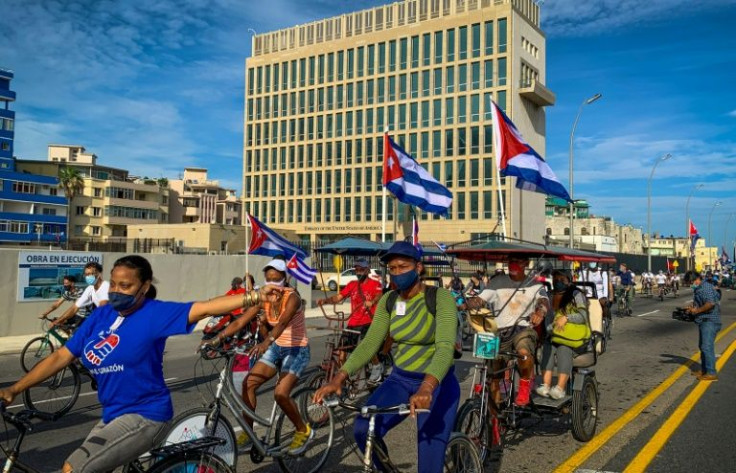What Is Havana Syndrome? CIA Says It Is Likely Not A Foreign Attack
The Central Intelligence Agency on Thursday reported that a foreign power is probably not mounting a global attack aimed at U.S. officials in the years-long series of the mysterious illnesses known as "Havana Syndrome."
A senior CIA official said it was "unlikely that a foreign actor, including Russia, is conducting a sustained, worldwide campaign, harming U.S. personnel with a weapon or mechanism." There has long been speculation that the symptoms were due to Russian microwave attacks.
Cases of Havana Syndrome were first collectively identified in 2016. Since then, health experts and scientists have yet to find an explanation for why or how it occurs. For years, many have suspected that they could result from foreign attacks, with multiple theories being proposed with varying degrees of supporting evidence.
The CIA said that most cases are likely not a result of foreign interference from Russia, as well as China or Cuba.
Some have noted that the news should be taken with a grain of salt since it is coming from the CIA, a secretive organization. Still, the agency claims that most have separate environmental or medical causes with rational explanations, though the CIA did not expand on details beyond that and two dozen cases are still unexplained out of the 1,000 potential cases.
Multiple agencies are still investigating the role of foreign powers despite the CIA’s reported findings. Some have also suggested that the illness is psychogenic, suggesting a collective psychological issue such as stress rather than a physical explanation. Some have also theorized ultrasound from electronic signals, pesticides or infectious agents, as well as microwaves.

However, multiple task forces from the CIA to the State Department and Defense Department have tried to find an origin or who is responsible. The syndrome seems to target U.S. intelligence personnel and lawmakers, but there have been cases with Canadian officials as well.
Symptoms include hearing noises varying in loudness, ringing or buzzing in the ears, pain in the ears, feelings of pressure or vibrations in the head, problems with vision, vertigo, nausea, cognitive impairment, trouble with sleep, fatigue and dizziness. These symptoms are the result of several different infections, illnesses, viruses and other impairments and may not be collectively connected at all.
Havana Syndrome has been reported by U.S. officials all over the world, including in: Guangzhou, China; Hanoi, Vietnam; Washington, D.C., Berlin; Vienna; London; Bogota; Moscow; Tbilisi, Georgia; as well as Australia, Poland, Taiwan, Kyrgyzstan, Uzbekistan and India.
The first reports of cases in 2016 came from Havana, Cuba, which is where the name comes from.
© Copyright IBTimes 2024. All rights reserved.






















